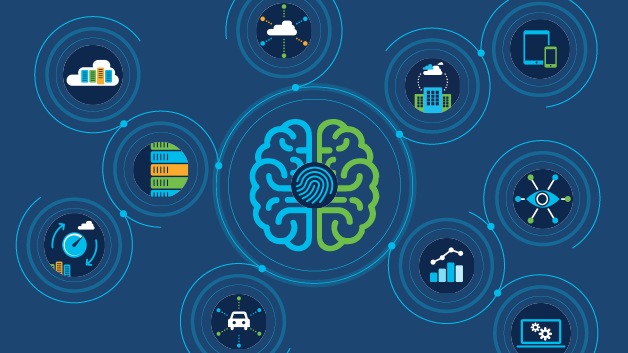For Working Professionals
Fully Online Format
13 Months
Coming Soon
Course Overview
Key Highlights
PG Diploma from upGrad Institute
360 Degree Career Support
1:1 Career Coaching
Live Sessions by Industry Experts
More than 25 Live Learning Sessions
200+ Hours of Learning
Student Support Available All Days
AI Profile Builder
Industry Based Projects & Case Studies
25+ Industry Projects Available
Certificate
Complete Post Graduate Diploma in Machine Learning and Artificial Intelligence (E-Learning) from upGrad Institute and
-3.png?width=375&height=264&name=Copy%20of%20Certificate%20sgpi%20(Horizontal)-3.png)
- Be part of the global upGrad community
- Network with like-minded individuals and learners
- Access and learn from global subject matter experts
- Enhance your Machine Learning and Artificial Intelligence skills
- Real world Machine Learning and Artificial Intelligence Industry Driven Projects & Case Studies
-3.png?width=1200&height=907&name=Copy%20of%20Certificate%20sgpi%20(Horizontal)-3.png)
A Post Graduate Diploma in Machine Learning and Artificial Intelligence (E-Learning) will be awarded to students who fulfill:
- Completion of the course
- A learner must pass each module by securing at least a D grade (1-grade point on a 4-point scale). However, to receive the PGD ML & AI, the CGPA, should be greater than 2.4
*Refer to FAQ for the entire eligibility criteria.
Syllabus
Best-in-class content by leading faculty and industry leaders in the form of videos, case studies, and projects
Meet our Lecturers
Syllabus
-
1:20
Teacher-Student Ratio
-
600+
Hours of Learning
-
35+
Live Learning Sessions
-
13 Months
Curriculum Duration
- Learn how to find and analyse the patterns in the data to draw actionable insights.
- Learn version control, collaborating, portfolio making using git. Understand the process of creating a repository.Learn the process of creating git hub portfolio using git hub pages with Jekyll.
- Build a strong statistical foundation and learn how to 'infer' insights from a huge population using a small sample.
- Understand how to formulate and validate hypotheses for a population to solve real-life business problems.
- Determine which customers are at the risk of default and what are their characteristics to avoid providing loans to similar people in the future.
- Venture into the machine learning community by learning how one variable can be predicted using several other variables through a housing dataset where you will predict the prices of houses based on various factors.
- Build a model to understand the factors car prices vary on and help a Chinese company enter the US car market.
- Learn your first binary classification technique by determining which customers of a telecom operator are likely to churn versus who are not to help the business retain customers.
- Understand the basic building blocks of Naive Bayes and learn how to build an SMS Spam Ham Classifier using Naive Bayes technique
- Learn the pros and cons of simple and complex models and the different methods for quantifying model complexity, along with regularisation and cross validation
- Understand generalised regression and different feature selection techniques along with the perils off over fitting and how it can be countered using regularisation.
- Build a model to understand the factors house prices vary on and help an American company enter the Australian housing market.
- Learn how to find a maximal marginal classifier using SVM, and use them to detect spam emails, recognise alphabets and more!
- Learn how the human decision-making process can be replicated using a decision tree and other powerful ensemble algorithms.
- Given a business problem, how do you choose the best algorithm? Learn a few practical tips for doing this here
- Learn how weak learners can be 'boosted' with the help of each other and become strong learners using different boosting algorithms such as Adaboost, GBM, and XGBoost.
- Learn how to group elements into different clusters when you don't have any predefined labels to segregate them through K-means clustering, hierarchical clustering, and more.
- Understand important concepts related to dimensionality reduction, the basic idea and the learning algorithm of PCA, and its practical applications on supervised and unsupervised problems.
- Solve the most crucial business problem for a leading telecom operator in India and southeast Asia - predicting customer churn.
- Learn the most sophisticated and cutting-edge technique in machine learning - Artificial Neural Networks or ANNs
- Learn the basics of CNN and OpenCV and apply it to Computer Vision tasks like detecting anomalies in chestX-Ray scans, vehicle detection to count & categorise them to help the government ascertain the width and strength of the road.
- Build a neural network from scratch in Tensorflow to identify the type of skin cancer from image
- Ever wondered what goes behind machine translation, sentiment analysis, speech recognition etc.? Learn how RNN helps in these areas having sequential data like text, speech, videos, etc
- Make a Smart TV system which can control the TV with user’s hand gestures as the remote control
- Do you get annoyed by the constant spams in your mailbox? Wouldn't it be nice if we had a program to checkyour spellings?
- Learn how to analyse the syntax or the grammatical structure of sentences using POS tagging and Dependency parsing.
- Use the techniques such as POS tagging and Dependency parsing to extract information from unstructured text data
- Learn the most interesting area in the field of NLP and understand different techniques like word-embeddings, topic modelling to build an application that extracts opinions about socially relevant issues.
- In this case study you will create a solution that will help in identifying the type of complaint ticket raised by the customers of a multinational bank
- Understand what is cloud computing, benefits of cloud computing, Different types of cloud providers: Private, public, hybrid. Iaas, Paas, Saas.
- In this case study you will work on a machine learning task using AWS services
- Do you think ML ends with just deploying a ML solution? You have to monitor the performance and keep updating the model and its infrastructure from time to time. Learn how to productionize ML model in an end-to-end system in this module.
- In the assignment you will build and run a complete ML pipeline end-to-end
- Apply the concepts learned in Neural Networks to advanced computer vision tasks like Object Detection,Semantic Segmentation using YOLO, SSD, UNet, MaskRCNN.
- It will also introduce you to the evolving world of deep learning for different NLP related applications. and will help you gain a complete understanding of how these complex models work. You will learn how deep learningcan be used for solving different NLP related tasks usingconcepts like attention mechanisms and transformers.
- In this case study you will learn how to automate a deep learning task by building an end-to-end machine learning pipeline with Amazon SageMaker Pipelines.
- Introduces students to the world of generative AI and various LLMs that have revolutionised the current industry, and enables learners to dive into that revolution by learning the nitty-gritties of writing a prompt to generate a desired output for complex tasks.
- Dive deeper into prompt engineering and learn how to structure prompts and outputs, and how you can use advanced prompting techniques such as chain-of-thought prompting, zero- and few-shot prompting, prompt injunctions, prompt parameter tuning. By the end of thismodule, learners will become proficient at definingprompts for most complex tasks.
- Learn the fundamentals of product development, and deploy your own GPT-enabled web app with the use of Flask.
- Understand the fundamentals of design, photography and product development to generate images and multi modal outputs for businesses.
- Write prompts to generate accurate codes for various general and data tasks, perform basic data processing and modelling tasks using ChatGPT and Copilot.
- Apply your learnings to create various GenAI enabled applications such as Interview Gynie, PixxelCraft and ShrewdNewsAI
- Understand the concepts of embeddings and take the first step towards building custom LLMs that involve integrating a database with your GenAI models.
- Embed large documents and datasets with the help of vector stores like Pinecone to enhance ChatGPT's ability to understand context, avoid hallucinations, and perform accurately on data-specific tasks.
- With the limitations of standalone LLMs, understand how LangChain can be used to overcome those limitations and help integrate GenAI models on specific data pools.
- Understand how the different components of LangChain such as Models, Prompts, Indexes, Chains, Memory andAgents help building a GenAI model.
- Understand how to connect components using chain, and how different inbuilt tools in LangChain can be leveraged for your models.
- Deploy your generative AI models using Azure OpenAI services and understand the considerations that go in when scaling generative AI models.
- Understand what the future of AI holds (mitigating risks in AI, RLHF as a product, Multimodal Learning), both from the architecture and applications perspective.
- Choose from a range of real-world industry woven projects on advanced topics like Recommendation Systems, Fraud Detection, GANs among many others.
- Build a model to using the concepts of natural language processing and recommender systems to recommend news stories to users on a popular news platform.
- To build a machine learning model capable of detecting fraudulent transactions. Here you have to predict fraudulent credit card transactions with the help of machine learning models.
- Build a model that can help any visually impaired person in understanding the image present before them. It is a deep learning model which can explain the content of an image in the form of speech.
- Build a sentiment analysis based product recommendation system to recommend the similar products to the users. Sentiment analysis is used to fine tune the product recommendation system.
- Predict the sales for a European pharma giant using a host of different types of variables. Apply VAR and VARMAX models to build the appropriate model
- Build a Model for converting MRI images from one type (T1) into other (T2) and vice versa.
- Predict the sales for a European pharma giant using ahost of different types of variables. Apply VAR and VARMAX models to build the appropriate model
- Build a Model for converting MRI images from one type (T1) into other (T2) and vice versa.
Industry Projects
- Engage in collaborative projects with student-mentor interaction
- Benefit by learning in-person with expert mentors
- Personalised descriptive feedback on your submissions to facilitate improvement
Telecom Churn
Solve the most crucial business problem for a leading telecom operator in India and Southeast Asia - predicting customer churn.

Telecom Churn
Classification Of Customer Complaints
Create a solution that will help in identifying the type of complaint ticket raised by the customers of a multinational bank.

Classification Of Customer Complaints
Credit Card Fraud Detection
Build a machine learning model capable of detecting fraudulent transactions. Here you have to predict fraudulent credit card transactions with the help of machine learning models.

Credit Card Fraud Detection
Melanoma Detection Assignment
Build a neural network from scratch in Tensorflow to identify the type of skin cancer from image.

Melanoma Detection Assignment
Train An Agent To Play Tic Tac Toe
Learners will apply Q-Learning to train an RL agent to play the game of numerical Tic Tac Toe

Train An Agent To Play Tic Tac Toe
Gesture Recognition
Make a Smart TV system which can control the TV with user’s hand gestures as the remote control

Gesture Recognition
News Recommender System
Build a model using the concepts of natural language processing and recommender systems to recommend news stories to users on a popular news platform.

News Recommender System
Maximizing Profit Of Cab Driver Using RL
Learners will use the Markov Decision Process & Q-Learning to build an RL agent that learns to choose the best request so as to maximize the total profit earned by the agent that day.

Maximizing Profit Of Cab Driver Using RL
Custom Entity Detection In Healthcare Data
You will build a custom NER to get the list of diseases and their treatment from a medical healthcare dataset.

Custom Entity Detection In Healthcare Data
Eye For The Blind
Build a model that can help any visually impaired person in understanding image present before them. It is a deep learning model which can explain the content of an image in the form of speech.You will build a custom NER to get the list of diseases and their treatment from a medical healthcare dataset.

Eye For The Blind
Sentiment Analysis Based Product Recommender System
Build a sentiment analysis based product recommendation system to recommend the similar products to the users. Sentiment analysis is used to fine tune the product recommendation system.

Sentiment Analysis Based Product Recommender System
Machine Translation System
To build an attention based Encoder-Decoder architecture for translating between English to Hindi & vice versa.

Machine Translation System
Sales Forecasting
Predict the sales for a european pharma giant using a host of different types of variables. Apply VAR and VARMAX models to build the appropriate model.

Sales Forecasting
Style Transfer Using GAN's
Build a Model for converting MRI images from one type (T1) into other (T2) and vice versa. CycleGAN model is used for producing T2 type MRI images given T1 type input MRI images.

Style Transfer Using GAN's
Face Mask Detection
Create a custom object detector using the YOLO algorithm to detect the presence of face masks in the images of different people.

Face Mask Detection
Customer Churn Prediction
To create an ML system that can predict the propensity of customers cancelling the subscription plan. The aim of the project is to provide the marketing team with insights into why a customer is choosing to leave. This will assist in identifying the probability of customer churn in the future so that preventive action can be taken.

Customer Churn Prediction
Lead Scoring Project
To build a lead scoring ML system that can remove junk calls by categorising leads on the basis of propensity to purchase. The system built should be able to reduce the customer acquisition costs in the long run.

Lead Scoring Project
Data Strategy Project
Help in creating a Data / AI Strategy for an ecommerce company by creating their roadmaps, solutions for use cases & prioritization frameworks.

Data Strategy Project
The upGrad Institute Advantage
Strong hand-holding with dedicated support to help you navigate your Post Graduate Diploma in Machine Learning and Artificial Intelligence (E-Learning)

Student Support (Non-Academic queries)
- Student Support Team is available 24*7
- Email us on studentsupport@upgrad.com OR use the "Talk to Us" option on the learning platform
Doubt Resolution (Academic)
- Live Discussion forum for peer to peer doubt resolution monitored by technical experts
- 1-1 Doubt solving sessions with Teaching Experts
- Informal peer groups on WhatsApp to clear doubts

Industry Networking
- Global alumni network based in over 85 countries
- Virtual networking sessions with classmates and alumni
- Online discussion forums for peer to peer interaction
- Learn and network with our industry experts and career coaches
- Informal peer groups on WhatsApp for learners to interact and network

Services
- Industry leaders to guide you on job opportunities, career path in the field of Data. Support on polishing your hard skills and soft skills for interview preparation
- Resume and LinkedIn profile building support, to enhance your career prospects.
- Global job opportunities.
Career Impact
Career Coaching (1:1)
(1:1) with a dedicated career coach to build your career path.
Career Webinars
Industry leaders to guide you on job opportunities, career path in the field of Data. Support on polishing your hard skills and soft skills for interview preparation.
Profile Builder
Resume and LinkedIn Profile Building to enhance your career.
Interview Preparation
Support on polishing your hard skills and soft skills for interview preparation.

Admission Process
Application
Course Counselling
Get Shortlisted
Application Fee
Finalise Enrolment
Course Fee : SGD $ 6,000
Application Fee: SGD $700 (non-refundable)
**Deferment fees are at 10% of the course fee and are non-refundable
*Fees stated are inclusive of GST

How will you benefit from this course
- Post Graduate Diploma in Machine Learning and Artificial Intelligence (E-Learning) from upGrad Institute
- Get Post Graduate Diploma in Machine Learning and Artificial Intelligence (E-Learning) without quitting your job
- Career Acceleration in your current role
- Up your Tech-related Skills
- Cutting-edge curriculum designed by industry experts
Frequently Asked Questions
Student Reviews from a similar course by upGrad Education

After just 6 months of starting my AI and ML journey, I have been rewarded with a Data Scientist position in Tech Mahindra with a very hefty package and this is just after going halfway through the program. I can put my money on this program on any given day and assure everyone that this is one program that stands apart from every other in the market. The program pedagogy is impeccable but what I liked the most is the constant motivation from my student mentor which kept me going in the program.

According to me this particular program is pretty useful and adds value because of its structured approach, strict schedule, deadlines and the discipline in learning that the overall process brings along. The whole idea that you will spend almost a year learning about ML/AI in a structured and organized manner is the biggest USP of this program and what makes it different from other short term courses.

Overall it is a very well rounded program (and only one of the few) and while the topics are being covered in sufficient depth, it would not be useful to compare this with MOOC’s or any other specialised programs covering only one of the topics. The primary importance of this program lies in the structured approach and well-rounded coverage (with the industry insights that it offers).

This program sets very high standards in the field of ML and AI. Before joining this program I searched about many other programs but none of them is at par to this program. Yes it’s true that nothing is perfect in this world, but whenever they commit mistakes they are very fast to respond and do not hesitate to accept and rectify that. I am completely satisfied with what they have given me, your money will not get wasted and you will get opportunity to expose yourself to the field of ML and AI.
Contact Us
For queries, feedback and assistance
Monday - Friday | 9am to 6pm
*All telephone calls will be recorded for training and quality purposes.
*If we are unavailable to attend to your call, it is deemed that we have your consent to contact you in purpose.























.webp?width=174&height=104&name=aws%20(1).webp)









